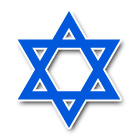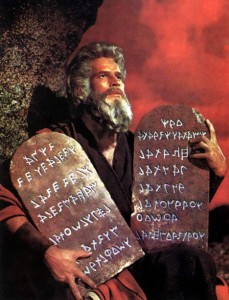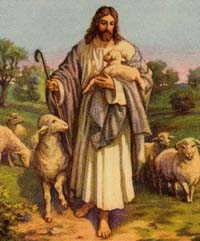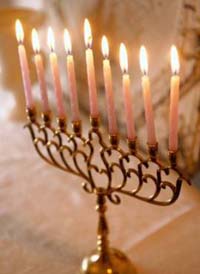Judaism
What is hateful to you do not do to your neighbor. That is the whole Torah - the rest is commentary.
- Talmud, Tractate Shabbat 31A
 >
>
Fundamentals
Jews follow the world’s oldest monotheistic faith with traditions extending back to the earliest days of civilization. Not only do Jews regard their faith as a religion, but according to their religious outlook those born into the faith are born into the Jewish nation as well (it is a culture as well as a religion) - and those who convert to the faith are said to join the Jewish nation.
Judaism is a birthright religion, meaning you are born Jewish. In most denominations of Judaism it is believed that this made possible by the mother's Jewish identity, so that Judaism is of matrilineal descent, i.e., one is Jewish if one’s mother is Jewish, particularly in the Orthodox and Conservative movements. This may have originated during ancient times in cases of war or rape, allowing identification of a child's mother, but not the father. In Reform and Reconstructionist Judaism, either matrilineal or patrilineal descent is used to determine if a person is Jewish; otherwise, anyone wishing to become Jewish must consult with a rabbi and convert. A convert is regarded to be as Jewish as anyone else in the community.
The Jewish people as a whole live under the Covenant that was formed between God and Abraham (this covenant is circumcision, performed by a ritually trained surgeon or mohel — (not a ULC minister), and with this strong foundation, Judaism is unshakable.
The Concept of God in Judaism is entirely monotheistic. The most important prayer in Judaism is “Hear O Israel, the L-rd, Our G-d, the L-rd is One”. Judaism rejects any kind of plurality, including deism and the Trinity. The Torah, or “Five Books of Moses”, states in Deuteronomy that God is a unity unlike any other. God is omnipresent, unfailing, and has a personal relationship with His/Her followers. You will note in this example that God’s name and the word Lord is abbreviated because for observant Jews it is thought to be too holy to utter in Hebrew, and this abbreviation permits Jewish people to write His/Her name for practical purposes.
The Story of Judaism
 God was revealed to the Jewish nation through the Covenant with Abraham and the prophecy of Moses.
Abraham, originally named Abram, was promised that by accepting the one true God as his only god, the
land of Canaan would be given to his descendants. Practicing Judaism means that an individual will be
living in accordance with these precepts; it also demands a deep respect for the Prophet Moses and the
laws that have been handed down unto the peoples of God. Those practicing Judaism within the boundaries
of Ancient Egypt were persecuted and placed into bondage to build great cities for the Pharaohs. The
story of the Exodus explains that Moses — thought to be an Egyptian prince but actually the son of
Hebrew slaves himself — was the deliverer of these Hebrew slaves, and that G-d dictated the entire Torah
to him, which Orthodox Jews still maintain.
God was revealed to the Jewish nation through the Covenant with Abraham and the prophecy of Moses.
Abraham, originally named Abram, was promised that by accepting the one true God as his only god, the
land of Canaan would be given to his descendants. Practicing Judaism means that an individual will be
living in accordance with these precepts; it also demands a deep respect for the Prophet Moses and the
laws that have been handed down unto the peoples of God. Those practicing Judaism within the boundaries
of Ancient Egypt were persecuted and placed into bondage to build great cities for the Pharaohs. The
story of the Exodus explains that Moses — thought to be an Egyptian prince but actually the son of
Hebrew slaves himself — was the deliverer of these Hebrew slaves, and that G-d dictated the entire Torah
to him, which Orthodox Jews still maintain.
 The words of the prophets are incontrovertible fact for those practicing Judaism, however it is not
always stated that these books are to be taken literally. Those who practice Judaism in a rabbinic
tradition believe that God laid down both the words and meaning of the Torah, and therefore, these
laws were based in part on an oral tradition. These laws
would be passed down for almost two millennia before being recorded in the Mishna and the two
Talmuds.
The words of the prophets are incontrovertible fact for those practicing Judaism, however it is not
always stated that these books are to be taken literally. Those who practice Judaism in a rabbinic
tradition believe that God laid down both the words and meaning of the Torah, and therefore, these
laws were based in part on an oral tradition. These laws
would be passed down for almost two millennia before being recorded in the Mishna and the two
Talmuds.
Beliefs and Practices
Resurrection unto everlasting life is promised to all the faithful practicing Judaism. Those practicing Orthodox Judaism believe the resurrection is a cardinal belief in the rabbinical tradition; those practicing Judaism in a Conservative capacity affirm this same tradition, but leave open the question how resurrection is to be interpreted. Those practicing Judaism in the Reformed or Reconstructionist traditions have rejected resurrection as a philosophy.
 The Messiah is a future great Jewish King who will rule over the entire Jewish nation in the coming
Messianic Age. When the Messiah comes, the Jewish people will live in peace and freedom in what will
become an ultimate time of good. This good will spread across all of those practicing Judaism, and,
ultimately, over all of humankind. The eventual coming of the Messiah will mark the entrance of a savior
for the Jewish nation to end their constant struggle against overwhelming odds.
The Messiah is a future great Jewish King who will rule over the entire Jewish nation in the coming
Messianic Age. When the Messiah comes, the Jewish people will live in peace and freedom in what will
become an ultimate time of good. This good will spread across all of those practicing Judaism, and,
ultimately, over all of humankind. The eventual coming of the Messiah will mark the entrance of a savior
for the Jewish nation to end their constant struggle against overwhelming odds.
Judaism requires one to follow a set number of laws to a policy of strict adherence. For the individual there is little that is more spiritually fulfilling than the ability to cleanse one’s body and soul through these laws. Furthermore, these stress the kind treatment of humanity and nature, and thus have tempered Jewish society to provide a great level of respect and freedom.
The Halakha, or Jewish law, and the Ten Commandments have also ensured the strict adherence to the moral path and ensured the sanctity of all peoples. According to the Talmud, there are 613 mitzvot, or holy commandments, in the Torah. These are requirements for all Jews, and the Orthodox make an especial effort to try and fulfill all 613. It is thought that by practicing as many as possible, the arrival of the Messiah will be hastened.
These laws also encourage the regular attendance of services at the synagogue or temple. This is mandatory for men and optional for women as women have different obligations – with home and children, especially among the Orthodox.
The onset of the Sabbath, or Shabbat, comes Friday night at dusk with the lighting of candles and ends at dusk Saturday night (or when there are three stars visible in the sky). It honors the creation of the world and sanctifies the day of rest commanded by God. It is also marked as a time of great prayer, and synagogue services are held in the evening, morning, and afternoon, marking the passage of time through the entire Shabbat cycle. Usually both the home and body are cleansed and groomed for the occasion, and it is a time spent in unity and love with one’s family, and for these reasons it is considered the holiest day in the Hebrew calendar. A Sabbath meal usually consists of challah or braided egg bread (round for holidays, except Passover), grape juice and/or kosher wine, roast chicken, noodle pudding, sweet potato pie, a vegetable dish, a cake, and coffee or tea. The dietary laws of Kashruth must be followed if the participants are Orthodox and, sometimes, Conservative and Reconstructionist/Reform Jews too.
While Jews, particularly the Orthodox, are bound by the 613 commandments, it does not require the same of gentiles. The Noahide laws are those given by God to Noah in order to help man avoid His/Her wrath. The laws prohibit idolatry, murder, theft, sexual deviancy, blasphemy, eating the living flesh of an animal before it is slaughtered, and ensuring the just treatment of all under the civil law of the people. Yet while most non-Jews abide by these, Christians honor the Ten Commandments, and if anyone wishes to observe more commandments than that, it is entirely optional.
Holidays and Festivals
There are many holidays on the Hebrew calendar, which is a lunar rather than a solar calendar, as is the case with the internationally accepted civil Gregorian calendar. Every several years there is an extra month added for this reason – it is considered a leap year. Rosh Hashanah (Rosh means “Head” in Hebrew so it means Head of the Year) is the New Year of the Hebrew Calendar. It is celebrated on the first day of the seventh Hebrew month of Tishrei. It is the first of the so called Days of Awe, or Yamim Noraim, that stress repentance for one’s sins. These prayers, however, come to a climax on Yom Kippur. Yom Kippur is the Day of Atonement in which a fast cleanses one as G-d decides whose names will be written in the Book of Life for the coming year. Apologizing to G-d for one’s sins is not enough. You must also make amends and apologize to any people you have hurt or cheated and ask for their forgiveness. Both Rosh Hashanah and Yom Kippur are holy days.
The Sukkoth is the Tabernacle Feast, and it was once traditional for Jews to celebrate this feast by visiting the great Temple in Jerusalem. During this time, one receives a blessing over each area of one’s house to mark it as in submission to God’s will. Sukkoth is one of the pilgrim feasts, and, according to Zechariah, in the Messianic age to come Sukkoth will be celebrated by pilgrimages to Jerusalem by all peoples. Nowadays people build huts or sukkot in their backyards or the backyards of the synagogues in order to celebrate, and they eat dairy meals in these huts which they decorate with hanging fruit.
 The eight days of Hanukkah are celebrated by the lighting of the nine candles of the menorah with the
ninth, tallest — the Shamesh. The holiday may occur from November to December in the Gregorian
calendar, and it celebrates the re-dedication of the great Temple in Jerusalem during the successful
revolt of the Maccabees against the besieging Syrian Greeks. One menorah candle gets lit each day to
mark the triumph of the Jews over their enemy: there was only enough oil to light the candles of the
temple for a short period of time; however, through a miracle of God it burned for eight days. These
eight days are also a time for family and exchanging gifts. It is a rather minor holiday which has
gained momentum in the West in recent times because of its proximity to Christmas and also in
commemoration of the Holocaust's victims.
The eight days of Hanukkah are celebrated by the lighting of the nine candles of the menorah with the
ninth, tallest — the Shamesh. The holiday may occur from November to December in the Gregorian
calendar, and it celebrates the re-dedication of the great Temple in Jerusalem during the successful
revolt of the Maccabees against the besieging Syrian Greeks. One menorah candle gets lit each day to
mark the triumph of the Jews over their enemy: there was only enough oil to light the candles of the
temple for a short period of time; however, through a miracle of God it burned for eight days. These
eight days are also a time for family and exchanging gifts. It is a rather minor holiday which has
gained momentum in the West in recent times because of its proximity to Christmas and also in
commemoration of the Holocaust's victims.
Purim, based on the Book of Esther in the Jewish Bible, the Tanakh, also called The Megillah, calls to mind the defeat of the Persian Haman who plotted to eliminate the Jewish nation. The book of Esther is publicly recited, and when the name of Haman is mentioned, noisemakers are rung to blot out the name of evil. Gifts are exchanged, and charity is offered to the less fortunate. There are also pastries that are eaten called Hamentaschen – literally Hamen’s pockets — or, in Italy, Orecci di Haman — Hamen’s Ears.
 Passover is a week long holiday that commemorates the exodus from slavery in ancient Egypt. It
is generally held between March and April, and is celebrated by the abstention from eating leavened
bread, as the fleeing members of the Jewish nation could not wait for bread to rise. Matzah is eaten
instead (and is not permitted to rise for more than 18 minutes). A ceremonial Seder meal consists of
Matzah and bitter herbs which recall the suffering of the Jewish people. Various prayers are recited
throughout the occasion.
Passover is a week long holiday that commemorates the exodus from slavery in ancient Egypt. It
is generally held between March and April, and is celebrated by the abstention from eating leavened
bread, as the fleeing members of the Jewish nation could not wait for bread to rise. Matzah is eaten
instead (and is not permitted to rise for more than 18 minutes). A ceremonial Seder meal consists of
Matzah and bitter herbs which recall the suffering of the Jewish people. Various prayers are recited
throughout the occasion.
Shavuot occurs in late May or early June and celebrates the anniversary of God’s gift of the Torah to Moses; it is also a pilgrimage festival, like the holiday of Sukkoth. Shavuot occurs fifty days after Passover, giving it the Greek name of Pentecost, or fiftieth day. The Shavuot is extremely important, because with the gift of the Torah to them, the Jews became a true nation with a set of laws to honor God.
The Jewish Legacy
Judaism is a rewarding philosophy and religion that ties together all of its practitioners into a nation that is free of borders, yet all of whom share a common regard and concern for the state of Israel. All Jews are called to share in the Covenant and it is this incredible world family that sets the Jewish faith apart from all faiths. Even in the modern world, with its myriad concerns and worries, the Jewish people look to the future and the great Messianic age that will deliver humanity from its worldly problems.
Some years ago the Dalai Lama sought out Jewish rabbis to engage in a dialogue with them to find out how the Jewish people have survived in exile for so many years. Indeed, with the preservation of their beliefs and customs in the face of near-insurmountable enemies, the Jewish people serve as an excellent example of long-suffering endurance.

